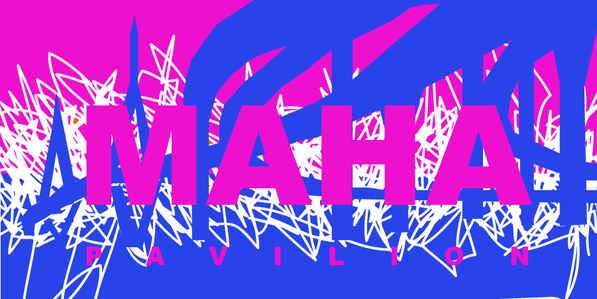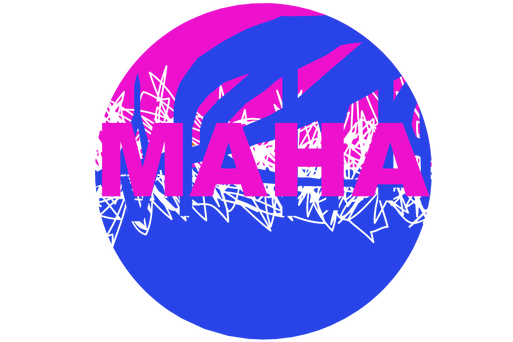Seeking 5 Bangkok-based artists!
To Apply: fill this Google Form by September 11th 12:00am ICT
|
For the Bangkok Biennial 2020 October/November edition, MAHA Pavilion would like to invite 5 Bangkok-based performance artists for a transnational collaboration in re-imagining world relations and the sanctity of place beyond national borders, with 5 international artists, who have never been to Bangkok.
Playing on the trope of the city of Bangkok as a tourist destination and product of Western desire, the Pavilion is asking the international artists to come up with performance proposals for a specific site of their choosing in the capital. In turn, the Bangkok-based artists will interpret and enact this framework, created from the desire for an unknown. As stated in the curatorial statement: |
|
Bangkok is the center of foreign desire.
More often than not, what is seen of Thailand, is the image foreigners expect to see of Thailand. From massage parlors, to Pad Thais, to gold-tipped pagodas and giant Buddhas, to name a few, Thai identity has been reduced to a form of escapism for the overworked Westerners under capitalism. It is perhaps not a coincidence that this year’s Bangkok Art Biennale, organized by the Ministry of Culture, set the theme of ‘Escape Routes’, reinforcing the image of the capital as a site of relaxation, culinary and carnal indulgence. As is the case with other similar developing countries, tourism has had a large impact not only on the economy of the country but also, on its ecology and self-representation. Tourism as a neocolonial strategy, manipulates the desire for exoticism into furthering racial, gender and socioeconomic stereotypes. The function of stereotypes is to maintain the power imbalance between the Western dominant and the marginalized Other. In internalizing these Western stereotypes, the marginalized subject believes they are responding to a desire that’s been made of them. But the root of this desire is fabricated and arbitrarily-assigned. It therefore only deepens feelings of alienation and othering within the marginalized subject and circulates a false sense of identity at home and abroad. Countering this view, the eminent Martinican philosopher Franz Fanon places desire as an agent of empowerment: “As soon as I desire I am asking to be considered. I am not merely here-and-now, sealed into thingness. I am for somewhere else and for something else. I demand that notice be taken of my negating activity insofar as I pursue something other than life; insofar as I do battle for the creation of a human world- that is a world of reciprocal recognitions.” To be able to desire exceeds the logic of being fixed. True desire is acknowledging the limits of one’s cultural beliefs, accepting the unknown and letting oneself be taken by an Other. Yearning for a place and time that are yet to come is a work of imagination. Can the desire for something foreign, something distinct from yourself, leads to a reimagining of our relationship to the world and one another? Can this desire release us from fixed identities and nations from borders? How can we desire creatively for a human world “of reciprocal recognitions”? The MAHA Pavilion seeks to unstable the power dynamic between the desiring and the desired, the foreigner and the exotic subject, the artist/author and the artist/fabricator. The name of the pavilion is a play on the Thai prefix ‘maha’ (มหา) which means “grand”, used in Bangkok’s name itself. Homonymically, it can also mean “visit” or “come here” (มาหา). For the Bangkok Biennial 2020, the Pavilion is inviting 5 international artists to work with local Bangkok artists in creating performances for a land that they do not know. The local Bangkok artists will enact the series of performances, conceptualized by the foreign artists for specific sites across Bangkok. Their actions across the city will leave no trace, aside from the memory of the actions themselves. By embracing the unknowability of a culture, a history, a society, we participate in imagining new relationships between people and place, transforming the familiar into the uncanny. |
|
The insistence on the term “Bangkok-based” instead of “Thai” recognizes Bangkok as a global city, composed of various nationalities and ethnic origins. The Open Call is aimed at self-identified performance artists who have a specific connection to the city, whether they were born there or lived there for only a year.
The levels of collaborations may vary depending on each international artist’s proposal and inquiry. Although the international artist’s proposal forms a starting point, the Bangkok-based artists are encouraged to challenge and modify the proposals to their own guise. The collaborative work that the Pavilion seeks to promote, stems from these processes of negotiation, mistranslation and cultural misunderstanding with the hope that they can open up fixed notions of identity and place and offer a counterbalance to the unequal power dynamic between the East and the West. Although the Pavilion was originally conceived to solely exist online due to budgetary restrictions and ecological considerations on international traveling, the current coronavirus pandemic solidified this format. The selected 5 Bangkok-based performance artists will work remotely with the international artists and the MAHA Pavilion organizer to design and concretize the performance proposals. They will then carry out the final performance in a public space. A minimum stipend of $200 (US Dollars) will be provided to the selected artists. |
|
To apply to the open call, please review the eligibility criteria and submission requirements below:
Eligibility:
Submission requirement:
The Open Call will begin August 1st and end on September 11th. The ideal candidates would have an artistic engagement with the problematic raised in the curatorial statement, even if it doesn’t appear in their previous work. They should be open to a collaborative work process, in which research material, conceptual framework and ways to materialize the work, are shared. They should be up to challenging their own voice as well as the voices of others, and be ready to adapt to unpredictable outcomes. The selection process will proceed by a vote between the MAHA Pavilion organizer and the 5 international artists based on the stated criteria. A maximum of 5 artists will be chosen. Selected candidates will be notified by September 14th 2020. |
| open_call.pdf | |
| File Size: | 304 kb |
| File Type: | |


